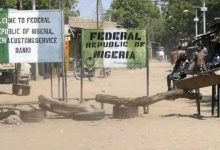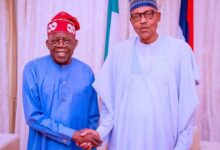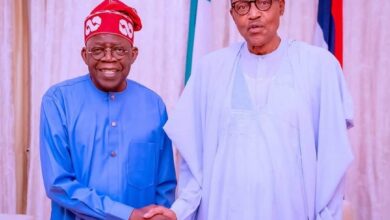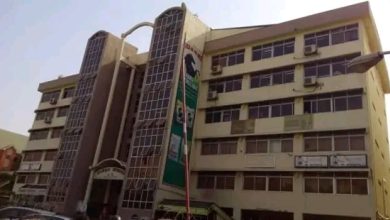The Coalition of 19 youth groups calls on Tinubu to sack Mele Kyari The Head Of NNPC Company
The Ultimate Guide to NNPC: Unveiling the Secrets of Nigeria's Oil Giant
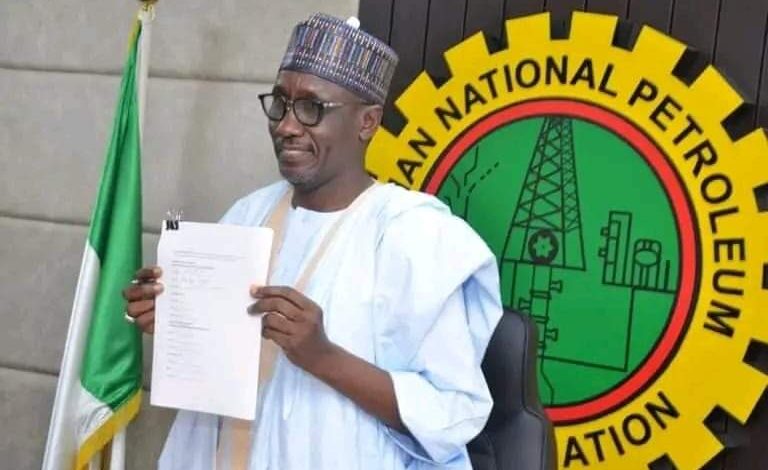
NOW: Coalition of 19 youth groups calls on Tinubu to sack Mele Kyari
The groups called on President Tinubu to immediately sack NNPC Chairman Mele Kolo Kyari and conduct a comprehensive investigation into the NNPC sector.
The massive coalition movement of 19 youth groups, NGOs and civil society organizations is deeply concerned about the instability and lack of purpose in the way Nigeria’s oil industry operates.
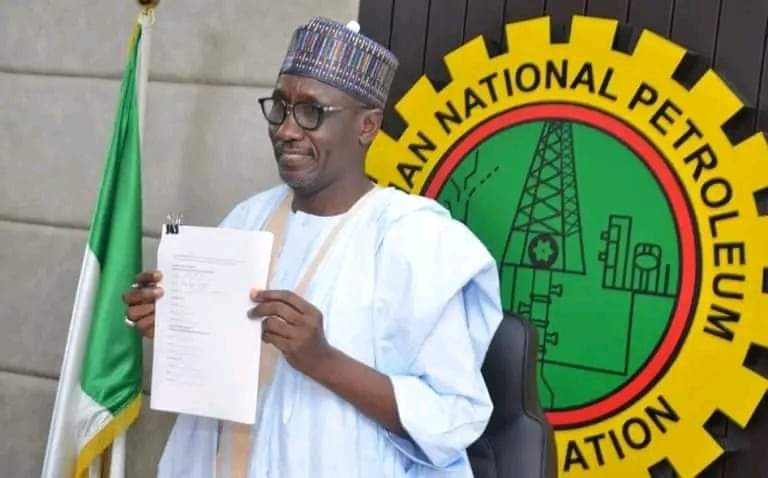
We are also saddened by the fuel shortage in the capital, Abuja, and other major cities in the country as the Independent Business Association, IPMAN, intends to increase fuel prices within a week. We are also concerned about the mounting allegations of fraud, graft and corruption at the Nigerian National Petroleum Corporation (NNPCL) since the appointment of Engineer Mele Kyari as Chief Executive Officer.
As a coalition of national organizations, we have exposed a number of corruption allegations at the National Petroleum Agency, including a fuel subsidy scandal, non-payment of fuel sales revenue, corruption, lack of monitoring of oil pipelines and oil theft.
One of the many acts of corruption committed under Kyari was the withdrawal of N2.1 trillion from the monthly revenue of the Nigerian National Petroleum Corporation without transferring the money to federal funds. Additionally, Kyari is believed to be responsible for producing contaminated fuel or contaminated fuel that entered the country in 2022, causing damage to several vehicle engines and generators.
Allegations of corruption and the transfer of billions of dollars to personal and friend accounts must be thoroughly investigated and Kyari will be prosecuted if found guilty.
We would like to point out that the appointment of Engineer Mele Kyari as the Executive General Manager of NNPCL is not in compliance with the provisions of the Companies and Allied Affairs Act (CAMA).
Given that NNPCL was recently converted into a private company under the Petroleum Industry Act (PIA Act 2021), it is no longer allowed to receive state funds.
Its shares and assets, including oil blocks and refineries, are now owned by the Ministry of Petroleum and Finance. However, NNPCPL failed to act as a joint venture supplier (JPV) with Western Oil Major (WOM) as required by law. Furthermore, NNPCPL, led by Engineer Mele Kyari, is not transparent in its crude oil contracts and settlements.

Loss of federal funds funds
In 2022, Kyari and NNPC failed to transfer any funds into federal funds for seven consecutive months. This comes despite Nigeria generating N16 trillion in revenue from oil trade this year.
Kyari must explain to businesses receiving subsidies what the money is used for and tell the truth.
We expect President Tinubu’s administration to insist on PIA or PIB and fire and investigate not only Engineer Mele Kyari but also other top officials of the NNPC such as Vice President (UP) Adokiye Tombomieye. Ali Muhammad Zahra, Managing Director, Nigeria Petroleum Development Corporation (NPDC), Bala Wonti, Managing Director, Petroleum Investment Management Institution (NPIMS). This comprehensive process is necessary to cleanse the National Petroleum Administration of corruption.
Inequality in government services:
It is unfortunate that Mele Kyari, the engineer who allegedly exchanged funds for every Nigerian in the federation account, is still allowed to remain in charge of the NNPCPL while heads of ministries and other important agencies such as the CBN and EFCC remain in charge. He was deported, arrested and searched.
This raises the question why the NNPC and Engineer Mele Kyari’s case were handled differently. If the government is truly committed to solving the problems of funding shortages, oil theft, oil pipeline monitoring contracts, fuel subsidy fraud, failure to transfer funds to federal funds, inequality and dishonesty at the Nigerian National Petroleum Corporation, Engineer May should not be allowed to That’s what Rai Kayari did. His condition has progressed.
Most Nigerians are well aware that oil production and transfers to federal funds have not increased significantly since engineer Mele Kyari took over as chief executive of the Nigerian National Petroleum Corporation.
We therefore call on President Bola Ahmed Tinubu to take necessary steps to sack and investigate Engineer Mele Kyari. This is critical to the safety, responsibility and growth of the Nigerian petroleum industry.
His removal was inevitable given the allegations of massive financial irregularities and lack of accountability at the NNPC under Kyari.
The federal government must take immediate action to address these issues and ensure that those involved in corruption and embezzlement are punished. The people of Nigeria deserve honest and reliable leadership that prioritizes the country’s economic stability and the well-being of its citizens.
It is important that these allegations are addressed, fully investigated, and those involved in corruption and fraud prosecuted. Restoring the honesty, reliability and financial stability of the NNPC is important for the development of the Nigerian economy and its citizens.
The Ultimate Guide to NNPC: Unveiling the Secrets of Nigeria’s Oil Giant
In the world of oil and gas, few names carry as much weight as the Nigerian National Petroleum Corporation (NNPC). Established in 1977, NNPC is not just the largest oil and gas company in Nigeria; it’s also one of the most influential players in the global energy industry. In this comprehensive SEO blog post, we will delve into the depths of NNPC, uncovering its history, operations, and impact on Nigeria’s economy.
- The Genesis of NNPC:
- Begin by discussing the historical context of NNPC’s formation.
- Highlight the importance of oil in Nigeria’s economy.
- Mention the key objectives behind NNPC’s establishment.
- Organizational Structure:
- Describe NNPC’s intricate organizational structure.
- Explain the role of subsidiaries like NNPC Retail, NNPC Exploration and Production, and NNPC Downstream.
- NNPC’s Core Functions:
- Explore NNPC’s primary responsibilities, including exploration, production, and marketing.
- Discuss the corporation’s involvement in both upstream and downstream activities.
- NNPC’s Role in Nigeria’s Economy:
- Provide statistics on NNPC’s contribution to Nigeria’s GDP.
- Explain how NNPC impacts job creation and revenue generation.
- Discuss the challenges NNPC faces in fulfilling its economic role.
- International Partnerships:
- Highlight NNPC’s collaborations with international oil companies.
- Mention key joint ventures and projects that NNPC is involved in.
- NNPC’s Social Responsibility:
- Discuss NNPC’s commitment to corporate social responsibility.
- Provide examples of NNPC’s initiatives in education, healthcare, and community development.
- Challenges and Controversies:
- Address some of the controversies and challenges NNPC has faced over the years.
- Mention issues related to transparency, corruption, and mismanagement.
- Future Outlook:
- Discuss the potential future developments and reforms within NNPC.
- Highlight any plans for modernization and growth.
- Environmental Impact:
- Discuss the environmental concerns associated with NNPC’s operations.
- Mention any initiatives aimed at mitigating these impacts.
- Conclusion:
- Summarize the key takeaways about NNPC.
- Emphasize its crucial role in Nigeria’s oil and gas sector and its significance on a global scale.
By covering these aspects comprehensively, this blog post aims to provide readers with a thorough understanding of the Nigerian National Petroleum Corporation (NNPC), its history, functions, challenges, and its impact on Nigeria’s economy and the global energy landscape. Stay tuned for more updates on this essential player in the world of oil and gas.
